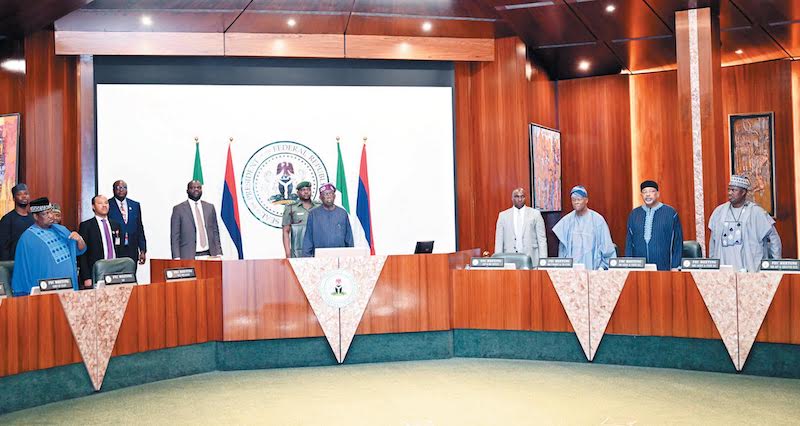By Iyemah David
The Federal Executive Council’s (FEC), recently approved 1.07 billion dollars for the health sector reform, and N4.8 billion for HIV treatment under the Human Capital Opportunities for Prosperity and Equity (HOPE) programme.
The funds, which would be sourced through World Bank concessional loans and international grants, aimed to expand primary healthcare services, recruit and train more health workers, and ensure uninterrupted HIV treatment among others.
Some Nigerians on Tuesday in Abuja described this as a significant investment in the Nigeria’s health system, while others were eager to understand how this would impact access to quality healthcare.
In separate interviews with the News Agency of Nigeria (NAN), some respondents canvassed for the funds to be deployed in strengthening PHCs for more accessibility.
According to Dr Gabriel Adakole, strengthening PHCs means that more people can access quality care closer to their homes, reducing the pressure on secondary hospitals.
Dr Adakole noted that a major concern for many Nigerians recently, had been the shortage of doctors, nurses, and community health workers, a situation leading to long waiting times and inadequate medical care.
He said that the ‘’HOPE’’ programme funding would support the recruitment, training, and retention of healthcare workers at the state and local government levels.
Similarly, some patients at the Federal Medical Centre (FMC), Jabi, said that the intervention could translate to shorter waiting times at clinics and hospitals.
They also said that it would help ensure that more skilled personnel handle medical emergencies and routine care as well as reduced strain on existing healthcare workers, leading to better service delivery.
Mrs Lydia Mainasara, a patient at the maternity ward said that with more trained professionals available, Nigerians in both urban and rural areas stand to benefit from high-quality medical care and improved health services.
The approval of N4.8 billion for HIV treatment packs, means that 150,000 Nigerians living with HIV (PLHIV) will have uninterrupted access to life-saving medication over the next four months.
This is a crucial step in ensuring that patients remain on treatment, preventing drug resistance and further transmission of the virus.
For many PLHIVs in the FCT, the cost of antiretroviral drugs (ARVs) remains a challenge.
However with this government-funded intervention, access to ARVs will be more affordable and reliable, with fewer disruptions in treatment.
This means improved health and quality of life, as stronger national HIV response efforts will help Nigeria move closer to global HIV/AIDS targets.
Now, Nigerians, particularly those in rural and underserved areas, through this intervention will have a “Better-equipped primary health centres with essential medicines and supplies.
It will also mean improved emergency maternal and child health services, reduction in preventable deaths, enhanced immunisation programs to protect children from deadly diseases.




